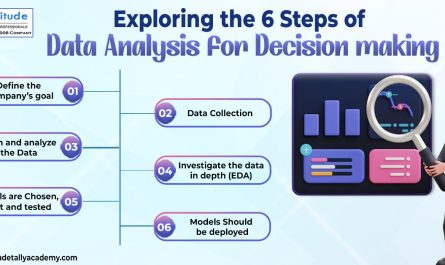In today’s fast-paced digital world, businesses rely on data to drive decision-making and streamline operations. If you’re considering a career in technology and business intelligence, you might be torn between Management Information Systems (MIS) and Data Analytics. While both fields focus on managing and interpreting data, they serve different purposes and require distinct skill sets. Understanding these differences will help you choose the right path for your career goals.
Understanding MIS and Data Analytics
What is MIS?
Management Information Systems (MIS) combines technology and business processes to support decision-making and operational efficiency. Professionals in this field work on database management, enterprise resource planning (ERP) systems, and IT infrastructure to ensure that businesses run smoothly. MIS specialists help organizations structure and utilize their information systems effectively, making them essential in various industries.
What is Data Analytics?
Data Analytics involves gathering, processing, and analyzing data to identify trends, patterns, and insights that guide business strategies. Analysts use tools like Python, SQL, and machine learning to work with large datasets, helping organizations make data-driven decisions. This field is crucial in sectors such as finance, healthcare, marketing, and e-commerce, where data plays a significant role in predicting trends and improving performance.
Key Differences Between MIS and Data Analytics
| Aspect | MIS | Data Analytics |
| Primary Focus | Managing and optimizing business information systems | Analyzing data to derive actionable insights |
| Skills Required | Database management, Excel, ERP, IT systems | Python, SQL, Machine Learning, Data Visualization |
| Industry Demand | IT, Business Management | Finance, Healthcare, Marketing, E-commerce |
| Career Paths | IT Manager, Business Analyst, ERP Consultant | Data Analyst, Data Scientist, ML Engineer |
Career Opportunities in MIS and Data Analytics
Both MIS and Data Analytics provide diverse career paths, and your choice should align with your interests and skills.
Careers in MIS:
- Business Intelligence Analyst
- IT Project Manager
- Database Administrator
- ERP Consultant
Careers in Data Analytics:
- Data Analyst
- Data Scientist
- Machine Learning Engineer
- Business Analyst
Essential Skills for a Successful Career
To excel in either field, you need to develop relevant technical skills:
- For MIS: Strong command over SQL, database management, ERP systems, and advanced Excel is essential.
- For Data Analytics: Proficiency in Python for data science, machine learning algorithms, SQL, and data visualization tools like Tableau is highly beneficial.
For students looking to enhance their expertise, structured training programs in data analytics courses in Yamuna Vihar or MIS training in Uttam Nagar provide hands-on experience and industry-relevant knowledge.
How to Choose the Right Path
To make the right career choice, consider your interests and strengths:
- If you enjoy working with business processes, databases, and ERP systems, MIS might be the right fit.
- If you are inclined toward data interpretation, statistical analysis, and coding, Data Analytics could be your ideal career.
Both fields offer excellent career growth and high earning potential. Your decision should be based on your passion and long-term career vision.
Conclusion
Whether you choose MIS or Data Analytics, both fields offer exciting career prospects in today’s technology-driven market. Acquiring the right skills through specialized training programs can significantly boost your career potential. If you’re ready to embark on this journey, enrolling in a data analytics training institute in Yamuna Vihar or an MIS training institute in Uttam Nagar can help you gain the expertise needed to succeed in the industry. With the right knowledge and hands-on experience, you can build a rewarding career in data-driven decision-making.




